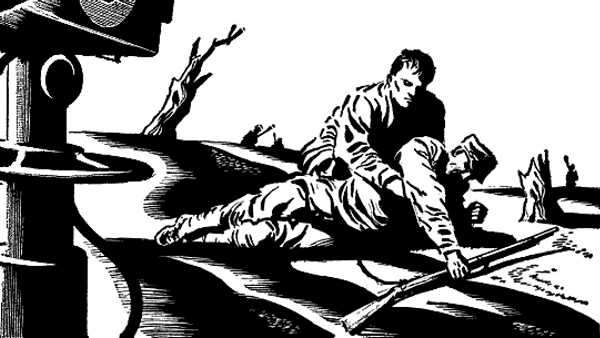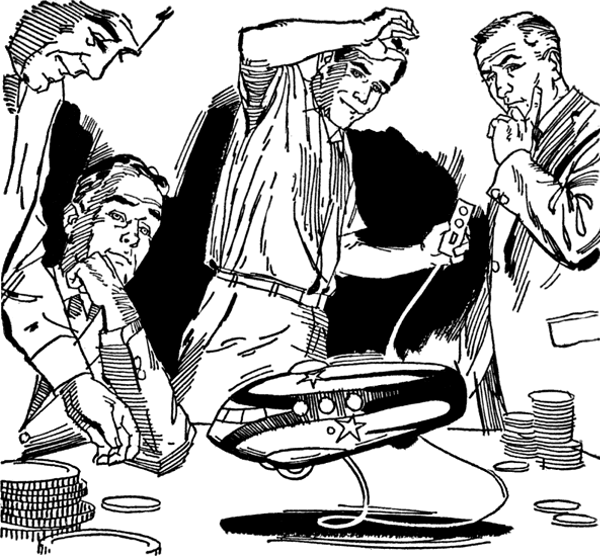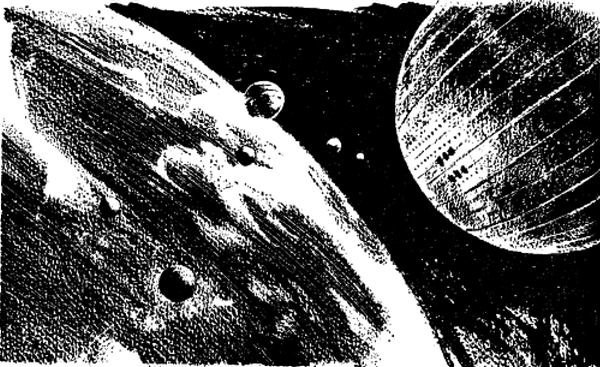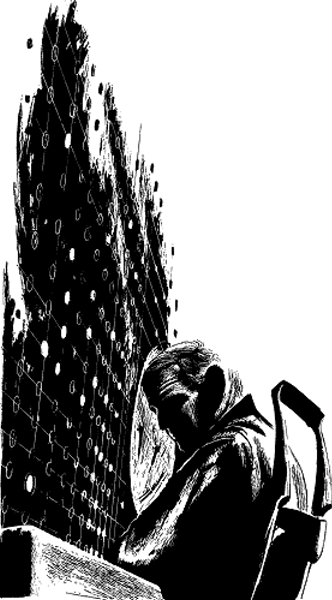
by Victoria Silverwolf
April is the cruelest month — T. S. Eliot, The Wasteland

Maybe it's because it's almost time to mail in those tax forms to Uncle Sam, or maybe it's because of the tension between President Kennedy and the steel companies, or maybe it's because Jack Parr left his television series (which will now be known by the boring, generic title The Tonight Show), or maybe it's because the constant radio play of the smash hit Johnny Angel by actress Shelley Fabares of The Donna Reed Show is driving me out of my mind, or maybe it's because of George Schelling's B movie cover art for the May 1962 issue of Fantastic; but for whatever reason your faithful correspondent approached the contents of the magazine with a leery eye.

I must admit that Murray Leinster's lead novelette Planet of Dread did little to improve my mood. The melodramatic title fits this old-fashioned adventure story. Our hero has killed a man – for good reason, you will not be surprised to find out – and becomes a stowaway on a spaceship with a group of political revolutionaries. Once discovered, his only choices are to be killed or stranded alone on a distant planet. Unsurprisingly, he chooses the latter. The ship arrives on a world where a badly botched effort at terraforming has resulted in – you guessed it – giant spiders and other creepy crawly critters.
Thus we have the literary equivalent of Them!, Tarantula, The Black Scorpion, Beginning of the End, The Deadly Mantis, Earth vs the Spider, Monster from Green Hell, Cosmic Monsters, and all those other Big Bug movies of the past decade. Under attack, the revolutionaries prove to be either Good Guys or Bad Guys. There's also one female aboard the ship, whose role is to be the Girl. Leinster is an old pro at this sort of thing, but the corny nature of the plot forces me to dismiss the story with two stars.

Wildly different in style and content is The Survey Trip by controversial writer David R. Bunch. It's a bizarre, surreal tale in which the narrator, rolling along in a beach ball, encounters a man in a heart-shaped metal suit. Together they visit places like Knockjonesbrainsout and meet people like Miss 9-to-5-No-Time-Off-For-Lunch. It's all very strange and probably symbolic. Some people will hate it. The story is short enough not to wear out its welcome, and the sheer weirdness of it held my interest, so I'll give it three stars.

A few months ago Jesse Roarke appeared in the pages of Fantastic with an intriguing, if overwritten, allegory entitled Atonement. The new story from this fledging author is similar. Ripeness is All takes place in a future which at first seems idyllic. All needs are taken care of by technology. Androids act as one's servants and lovers. Yet the protagonist feels that something is missing. He begins by seeking out a library to learn as much as he can from books. Soon he leaves the utopian city and heads out into the wilderness, where he meets with farmers, warriors (who fight but never kill), artists, and philosophers. After rejecting all of these, he discovers his own purpose in life. Although some of the writing is a bit flowery, the story is an interesting fable, worthy of three stars.

"The Piebald Hippogriff" by Karen Anderson (married to Poul Anderson) is a light confection. It's a brief, charming account of a boy, the hippogriff he tames, and the land of flying islands in which they dwell. Three stars for this tasty trifle.

English-born author A. Bertram Chandler (now living Down Under as an Australian citizen) appears under his pseudonym George Whitley with Change of Heart, reprinted from the British magazine New Worlds. A castaway tells his rescuers of his encounters with dolphins and whales which led him to believe there is more to these animals than meets the eye. The author's experience as a merchant marine officer ensures that this tale of the mysteries of the sea is realistic and convincing. Three stars.

Last and probably least is Double or Nothing by Jack Sharkey, resident comedian for editor Cele Goldsmith. His latest farce involves two inventors whose gizmos always do something other than intended. In this case a device intended to provide a way to escape the Earth's gravity turns out to duplicate whatever it comes in contact with. Shooting off into the sky, it soon manufactures copies of everything (including cornflakes) and the story becomes a variation on The Sorcerer's Apprentice. The biggest problem is that the author does not provide any kind of conclusion at all. He simply presents the situation and leaves it unresolved. Two weak stars.
***
Although the meaty middle of this literary sandwich provided me with some satisfaction, the bland slices of bread surrounding its interior left me still hungry. How does it sate your appetite?




































